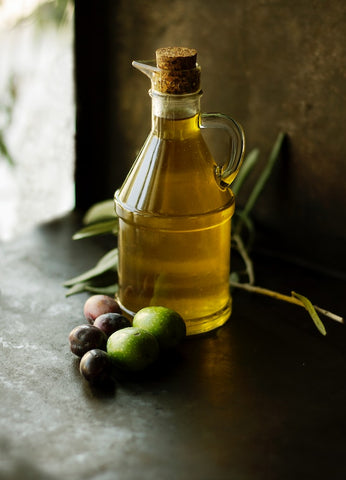Canola Oil vs. Olive Oil: Understanding the Differences and the Healthier Choice

When it comes to cooking oils, canola oil and olive oil often take center stage. Both oils have their distinct flavors, properties, and health benefits. In this blog post, we will delve into the differences between canola oil and olive oil, discuss their nutritional profiles, and shed light on why olive oil is considered the healthier choice. So, let's compare and contrast these oils and explore the truth behind the health claims.
Understanding Canola Oil: A Highly Processed Seed Oil
Canola oil is derived from the seeds of the canola plant, a variety of rapeseed. It is known for its neutral flavor, making it versatile for various cooking methods such as frying, baking, and sautéing. However, it's important to note that canola oil undergoes significant processing before it reaches store shelves.
The extraction process typically involves high heat, refining, and the use of chemical solvents. This processing removes impurities and neutralizes the strong taste and smell associated with rapeseed oil. Unfortunately, such high levels of processing can lead to the loss of beneficial compounds and the formation of potentially harmful substances.

The Health Benefits of Olive Oil: A Mediterranean Elixir
Olive oil, especially extra virgin olive oil (EVOO), is a staple in Mediterranean cuisine and is considered one of the healthiest oils available. It is extracted from the fruit of olive trees using mechanical methods without excessive heat or chemical intervention, ensuring the preservation of its natural goodness.
Olive oil is celebrated for its rich flavor profile, ranging from mild and buttery to robust and peppery. It is a key component of the heart-healthy Mediterranean diet, which has been associated with numerous health benefits, including reduced risk of heart disease, stroke, and certain cancers.
Highly Processed Seed Oils
While canola oil falls under the category of highly processed seed oils, it is essential to understand that not all seed oils are created equal. Highly refined and processed seed oils, including canola oil, often lack the natural antioxidants, polyphenols, and other beneficial compounds found in less processed alternatives.
The excessive processing of seed oils can result in the formation of trans fats, which are known to be detrimental to health. Trans fats raise LDL (bad) cholesterol levels, increase the risk of heart disease, and promote inflammation within the body.
The Healthier Choice
Compared to highly processed seed oils like canola oil, olive oil shines as the healthier option. The minimal processing methods used to extract olive oil help retain its natural antioxidants and polyphenols, providing anti-inflammatory and disease-fighting properties.
Olive oil is rich in monounsaturated fats, particularly oleic acid, which has been associated with several health benefits, including improved heart health, reduced inflammation, and enhanced cognitive function. The presence of antioxidants in olive oil further enhances its protective effects against oxidative stress and cellular damage.
Choosing Wisely: Incorporating Olive Oil into Your Diet
When it comes to cooking oils, olive oil takes the lead as the healthier choice due to its natural goodness and minimal processing. Extra virgin olive oil, with its abundance of antioxidants and polyphenols, offers the most significant health benefits.
However, it's important to remember that moderation is key, regardless of the type of oil you choose. Oils, including olive oil, are calorie-dense, so it's essential to use them sparingly as part of a balanced diet.




